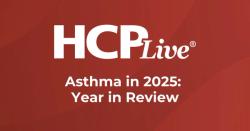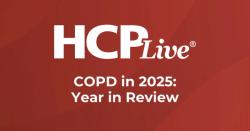
OR WAIT null SECS
Adults with Asthma on Corticosteroids at Increased Risk from COVID-19 Infection
Patients with asthma were at increased risk of hospitalization and ICU admission or death, prompting investigators to suggest these patients be considered a priority group for booster COVID-19 vaccines.
A new investigation from the University of Edinburgh found that adults with asthma who required 2 or more courses of oral corticosteroids in the previous 2 years or a hospital admission for their condition before March 1, 2020, were at an increased risk of both COVID-9 hospitalization and intensive care unit admission or death.
Investigators led Ting Shi, PhD, Edinburgh Medical School at the University of Edinburgh, suggested that patients with a recent asthma attack should be classified in the priority group for booster COVID-19 vaccines.
The team noted the uncertainty regarding whether adults with asthma should be offered booster vaccines against the virus, which informed the UK’s Joint Commission on Vaccination and Immunization’s decision to ask Shi and colleagues to participate in an “urgent analysis” of the matter.
With their study, Shi and investigators intended to identify which adults with asthma were at an increased risk of serious COVID-19 outcomes to inform deliberations of the booster vaccines.
The Methods
A national incident cohort was conducted in all adult patients in Scotland aged 28 years and older. Eligible patients were also included in the linked dataset of Early Pandemic Evaluation and Enhanced Surveillance of COVID-19 (EAVE II).
Investigators utilized data from the EAVE II dataset to investigate hospitalization rates from COVID-19 as well as the composite outcome of ICU admission or death.
From there, a Cox proportional hazard model was used to pull adjusted hazard ratios (HRs) and 95% CIs for the association between asthma and COVID-19 admissions and ICU admissions or deaths.
This data was stratified by markers of history of an asthma attack defined by either oral corticosteroid prescription such as prednisolone, prednisone, and dexamethasone, in the 2 years before March 1, 2020, or hospitalization for asthma before March 1, 2020.
The Findings
Between March 1, 2020, and July 27, 2021, 561,279 of 4,421,663 adults in Scotland had clinician-diagnosed-and-recorded-asthma.
Among adults with asthma, a total of 39,253 patients (7%) had confirmed infections with the COVID-19 virus and 4828 (12.3%) were admitted to the hospital for the infection. Investigators estimated that 600 of the admitted patients were in the hospital due to nosocomial infections.
Investigators observed that adults with asthma were at an increased risk of COVID-19 hospital admission (adjusted HR 1·27, 95% CI 1·23–1·32) compared with those without asthma.
Regarding patients who used oral corticosteroids in the preceding 2 years, the adjusted HR was 1.54 (95% CI 1.46–1.61) for those with 3 or more prescribed courses of oral corticosteroids, 1.37 (1.26–1.48) for those with 2 prescribed courses, 1.30 (1.23–1.37) for those with 1 prescribed course, and 1.15 (1.11–1.21) for those without any courses, compared with those aged 18 years or older without asthma.
Compared to adults without asthma, the adjusted HR was 1.44 (95% CI 1.31–1.58) for those with 3 or more prescribed courses of oral corticosteroids, 1.27 (1·09–1·48) for those with 2 prescribed courses, 1·04 (0·93–1·16) for those with one prescribed course, and 1·06 (0·97–1·17) for those without any course.
With their data, Shi and colleagues provided national evidence that adults with asthma with 2 or more courses of oral corticosteroids were at an increased risk of hospital admission or ICU admission or death.
“With booster vaccines being administered or planned internationally and nationally, together with other public health surveillance data, policy makers will be able to use data from our study to inform decisions on booster vaccination priorities among adults with asthma,” the team wrote.
The study, "Risk of serious COVID-19 outcomes among adults with asthma in Scotland: a national incident cohort study," was published online in The Lancet Respiratory Medicine.


